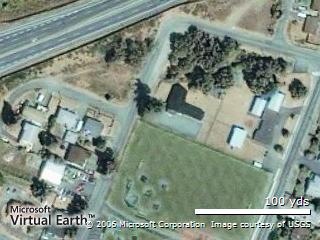A lengthy discussion on Frank’s site prompts this post.
A familiar charge by the sophisticated non-fundamentalist is that fundamentalism is essentially anti-intellectual. The sneering inference of the slur is that fundamentalists are nothing but backwoods hayseeds, barely capable of tying their shoes or of walking and chewing bubble gum at the same time. Fundamentalists are rubes, you see, they lack scholarship. They don’t write important books. In fact, they barely write. They do colour, though, and in some of their books they even colour in between the lines.
Well… that is hyperbole, of course. Nevertheless the charge of anti-intellectualism is frequently made and often said to be with some merit. See here:
And while a writer may legitimately quote an author with which he disagrees, it should be recognized that no fundamentalist is called upon in this chapter – an indication at least that the charge of anti-intellectualism against American fundamentalism does contain enough adhesive power to call any critic of neo-evangelicalism to a little self-examination once in a while.
Fundamentalists often leap to their own defense and point to the scholarship of various pastors, college professors, etc.
Too often these kinds of discussions are centred around an emotional imprecision in the use of terms. Anti-intellectual is code for someone who won’t join the club. Scholar is code for someone ‘who agrees with me,’ as one of my former professors once said.
Well what of it? What do these terms mean? Let’s try intellectualism first.
1. devotion to intellectual pursuits.
2. the exercise of the intellect.
3. excessive emphasis on abstract or intellectual matters, esp. with a lack of proper consideration for emotions.
4. Philosophy.
a. the doctrine that knowledge is wholly or chiefly derived from pure reason.
b. the belief that reason is the final principle of reality.intellectualism. Dictionary.com. Dictionary.com Unabridged (v 1.1). Random House, Inc. http://dictionary.reference.com/browse/intellectualism (accessed: December 07, 2007).
Let’s consider these one at a time. Given these definitions, am I an anti-intellectual? [edit note: change "intellectual" to "anti-intellectual"]
1. No
2. No
3. Yes
4a. Yes
4b. Yes
Now let’s look at anti-intellectualism:
1. a person opposed to or hostile toward intellectuals and the modern academic, artistic, social, religious, and other theories associated with them.
2. a person who believes that intellect and reason are less important than actions and emotions in solving practical problems and understanding reality.
–adjective
3. of, pertaining to, or characteristic of anti-intellectuals or their beliefs.anti-intellectualism. Dictionary.com. Dictionary.com Unabridged (v 1.1). Random House, Inc. http://dictionary.reference.com/browse/anti-intellectualism (accessed: December 07, 2007).
Am I an anti-intellectual according to these definitions?
1. Yes
2. No
3. Possibly
In a moment I want to look at the definition of scholarship, but what are we to make of these definitions so far?
I am definitely hostile to the so-called achievements of much of our society’s so-called intellectuals. Consider those who are lauded as artists, poets, notable Drs. of philosophy and so on in the vast majority of our most prestigious universities. Are these people whose thoughts should impress any believer in Christ? Should we care that we are not considered among their number? Their minds are darkened, professing themselves to be wise, they are altogether become fools.
When it comes to the noted Doctors of Religion in so many seminaries, are they significantly better than the secular intelligentsia? Hardly.
So I am an anti-intellectual and proud of it. Let the evangelicals pursue their intellectualism. They will find that they are numbered among the company of Proverb’s fools, chasing after the wind and vanity of Ecclesiastes. Do they think that they make any impressive statement in accusing me of anti-intellectualism? It is just propaganda, plain and simple. Name-calling. What does it gain, and what argument does it advance?
Besides, I embrace the term. Let’s hear it, as I said on Frank’s page, for anti-intellectualism.
One last "word game". Let’s look at scholarship:
1. learning; knowledge acquired by study; the academic attainments of a scholar.
2. a sum of money or other aid granted to a student, because of merit, need, etc., to pursue his or her studies.
3. the position or status of such a student.
4. a foundation to provide financial assistance to students.scholarship. Dictionary.com. Dictionary.com Unabridged (v 1.1). Random House, Inc. http://dictionary.reference.com/browse/scholarship (accessed: December 07, 2007).
The first definition is what should concern us here. In the discussion at Frank’s site, much was made of the fact that there aren’t many fundamentalist’s whom poor, benighted Dr. McCune could actually cite in his book. Scholarship, it was maintained, is evidenced by leaving a trail of published works behind one’s self. According to dictionary.com, this just isn’t so.
Furthermore, the facts prove otherwise. The men and women who populate the faculties of fundamentalist colleges and seminaries are devoted scholars themselves. Their attainments are well known and some of them do write occasionally. I maintain that market forces prohibit much publishing, but be that as it may, the presence or absence of published works are no proof or disproof of scholarship.
I am all for scholarship. I am all for study, diligence, hard work and educational attainment.
And I am unabashedly anti-intellectual.
And proud of it. Y’hear?
Regards
Don Johnson
Jer 33.3


Comments